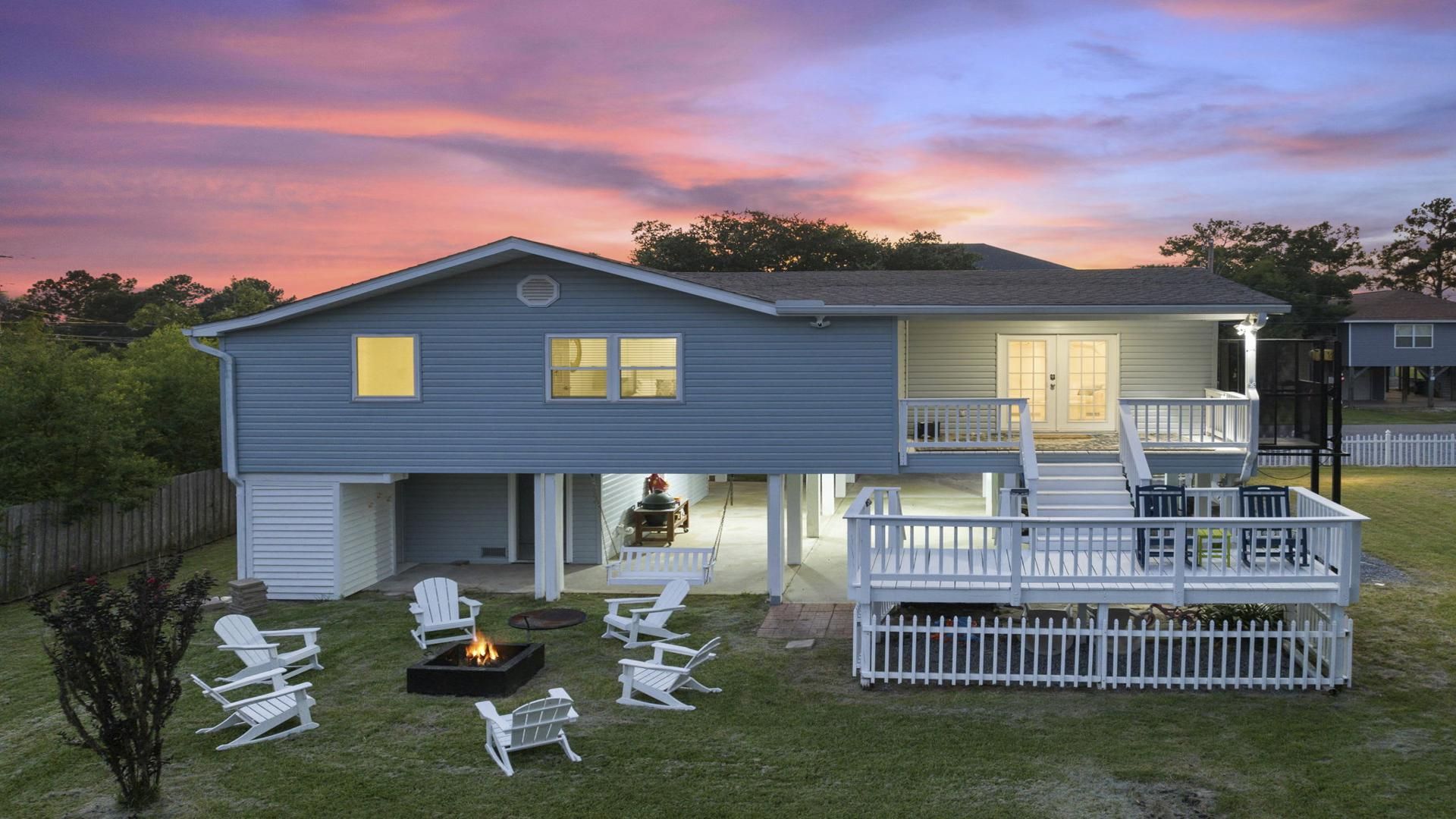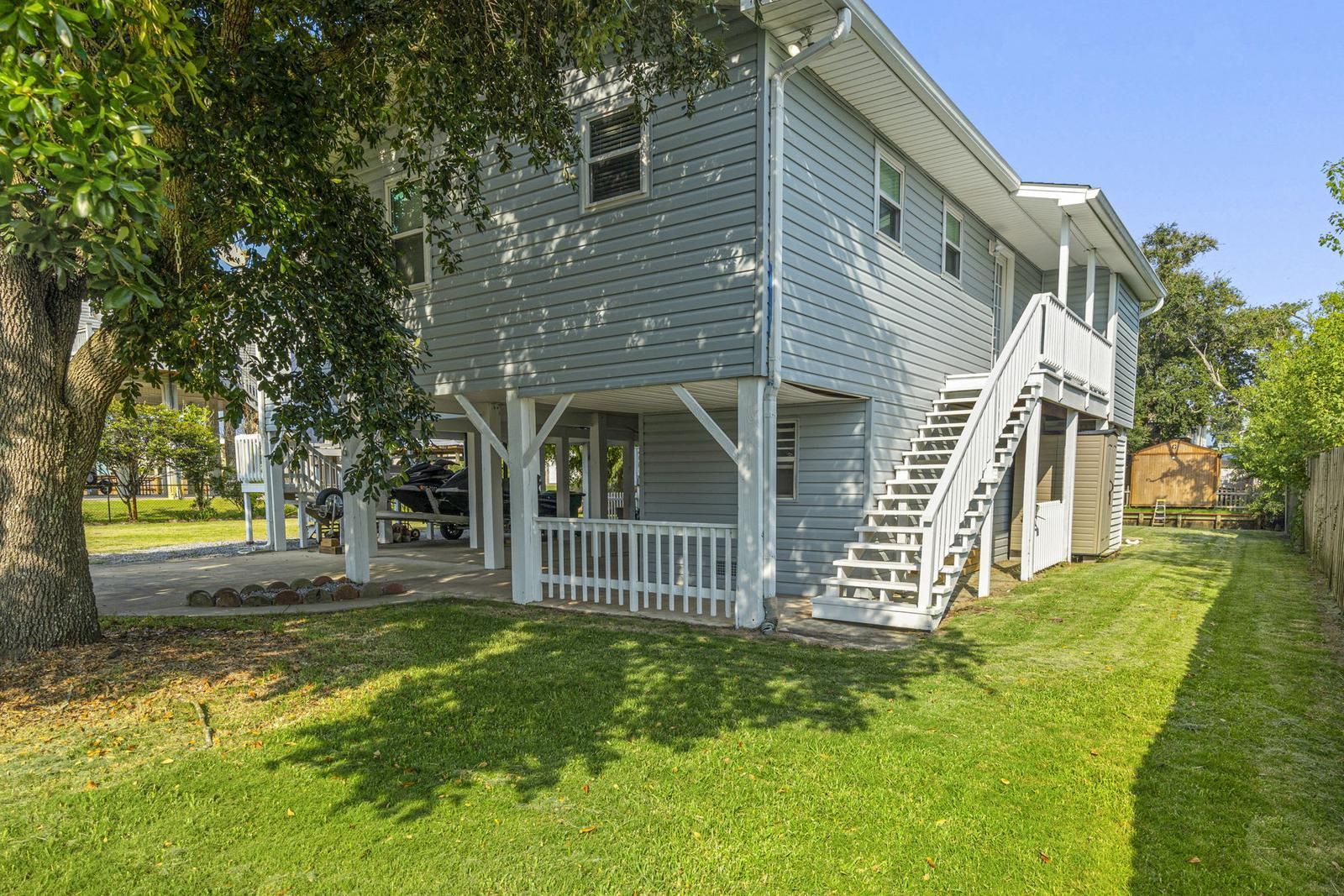Mississippi Short-Term Rental Regulations: A Compliance Guide
By: Albert Brown | Jun 26, 2025

The Rise of Short-Term Rentals in Mississippi
Mississippi’s rich cultural history, charming small towns, and scenic coastlines have long attracted visitors—but today, it’s also gaining attention from property investors and short-term rental (STR) hosts. As platforms like Airbnb and VRBO continue to dominate the vacation rental market, cities such as Gulfport, Oxford, and Natchez are seeing a rise in residential properties being used for short-term stays.
With tourism increasing along the Mississippi Gulf Coast, in college towns, and in historic districts, more property owners are tapping into the opportunity to generate income through STRs. Vacation rentals offer travelers an alternative to hotels and give owners the chance to maximize their property’s earning potential.
But with this opportunity comes complexity. Unlike some states that have enacted sweeping laws to govern short-term rentals, Mississippi follows a decentralized model. Most short-term rental regulations are crafted and enforced at the local level—by cities and counties—not by a single statewide law. That means what’s permitted in one city may be restricted or even prohibited in another.
Why Compliance Matters for Hosts and Investors
Whether you’re a local homeowner listing your guesthouse or an out-of-state investor managing multiple properties, understanding Mississippi short-term rental laws is critical. Failure to comply with local ordinances or to secure the right permits can result in fines, legal action, or even having your listing removed from platforms.
The landscape of STR regulation in Mississippi is not static either. Local governments are actively updating their ordinances to balance economic benefits with community concerns—like noise, parking, and housing availability. This makes staying informed an ongoing responsibility for hosts.
In this guide, we’ll walk through the key laws, permit requirements, and tax obligations you need to know. From state sales tax to city zoning laws, and from STR insurance to guest rules, this article is your comprehensive resource for navigating Mississippi’s short-term rental regulations responsibly and profitably.
What Qualifies as a Short-Term Rental in Mississippi?
Under Mississippi law, a short-term rental is generally defined as the rental of a residential property—such as a home, apartment, or condo—for less than 30 consecutive days. This applies to properties listed on platforms like Airbnb, VRBO, or managed independently through direct bookings.
The state’s definition primarily serves to classify these rentals for taxation purposes, but actual oversight of rental operations—such as zoning permissions, health inspections, and nuisance control—is largely delegated to local jurisdictions. That means your obligations may differ significantly depending on whether your STR is located in Gulfport, Oxford, Natchez, or Waveland.
It’s important to note: Even if your property is used only occasionally or seasonally as a vacation rental, it still qualifies as a short-term rental under the law—and is subject to the same legal responsibilities as a full-time STR operation.
Mississippi’s State-Level STR Laws and Tax Obligations
Mississippi State-Level Tax Regulations for Short-Term Rentals
While Mississippi does not have a unified short-term rental act like some other states, it does impose key statewide tax regulations that every STR operator must comply with. Here’s what you need to know:
Sales Tax Requirements
All short-term rental income in Mississippi is subject to the 7% state sales tax. Whether you rent out one unit or operate a portfolio of vacation rentals, you are required to:
- Register with the Mississippi Department of Revenue (DOR) through the Taxpayer Access Point (TAP)
- Collect the 7% sales tax from guests on each transaction
- Remit the tax to the state on a regular basis, depending on your filing frequency
Failure to register or remit taxes can result in significant penalties, including interest charges and disqualification from operating legally.
Local Tourism and Lodging Taxes
In addition to state tax, many cities and counties in Mississippi impose local lodging or tourism taxes, typically ranging from 1% to 3%. These taxes are often collected and remitted via the DOR, but some municipalities require direct remittance. Check with your city or county’s finance department to verify procedures.
Income Tax Considerations
Rental income is also subject to Mississippi state income tax and must be reported annually. If you operate your STR through an LLC or business entity, you may need to register with the Mississippi Secretary of State as well.
Understanding Local STR Ordinances and Permits in Mississippi

Local Oversight of Mississippi Short-Term Rentals
Unlike states with comprehensive preemptive legislation, Mississippi short-term rental regulations are shaped heavily by local ordinances. Cities and counties have the authority to enact their own laws, permits, and operational standards, often with minimal guidance from the state. This means the rules for your STR can vary widely depending on where your rental property is located—even within neighboring communities.
Understanding and complying with city regulations and county ordinances is essential for operating legally and protecting your investment.
Why Local Control Matters
In the absence of statewide operational laws, Mississippi municipalities are left to balance the economic benefits of vacation rentals with the potential for neighborhood disruption. This has led to a mosaic of local rules—some welcoming, others restrictive.
- Biloxi: Allows STRs but requires a Conditional Use Permit , including inspections, fees, and renewals.
- Oxford: Restricts STRs to certain zones, often requiring owner-occupancy.
- Natchez: Permits STRs but may enforce occupancy and noise limits; historical properties face added rules.
- Waveland: Emerging STR ordinances aim to balance tourism and residential life.
Common Local STR Requirements
✅ Zoning Restrictions
Most local governments restrict where STRs can operate. These laws may:
- Limit STRs to commercial or mixed-use zones
- Prohibit STRs in historic or single-family residential neighborhoods
- Require a minimum distance between STR properties
✅ Permit or Business License Requirements
Many municipalities now require STR owners to obtain a local permit or business license. This process typically includes:
- Submitting an application with property details
- Passing a building or fire inspection
- Paying permit or renewal fees
- Posting permit numbers on all online listings
Failure to secure a local permit can lead to fines, operational suspension, or platform bans.
✅ Health and Safety Standards
Expanded local safety codes often include:
- Occupancy limits based on bedroom count or square footage
- Emergency exit signage
- Smoke and CO detectors, fire extinguishers, first aid kits
- Inspections or self-certification
✅ Parking, Trash, and Nuisance Ordinances
To minimize disruptions, cities may enforce:
- Quiet hours (10 p.m. to 7 a.m.)
- Curbside trash and container storage rules
- Minimum off-street parking (e.g., one space per bedroom)
- Printed house rules and local host contact info for guests
Stay Current with City and County Requirements
Local ordinances frequently change. Always check your city’s Planning, Zoning, or Code Enforcement websites for STR updates. Many offer STR-specific portals or downloadable applications. When uncertain, contact the city clerk or planning office directly to verify your vacation rental’s legal status and requirements.
Operating Legally: Best Practices for Mississippi STR Hosts
Once you understand Mississippi’s state tax laws and your local city or county’s short-term rental ordinances, the next step is putting that knowledge into action. Operating your vacation rental legally is about more than paperwork—it’s about building a sustainable business that’s both profitable and respectful of the communities you serve.
✅ Register and Remit All Applicable Taxes
Make sure you’ve:
- Registered with the Mississippi Department of Revenue (TAP system)
- Set up a system to collect the 7% state sales tax
- Verified any local tourism or lodging taxes with your city or county
- Scheduled regular remittance and reporting based on filing frequency
Even if platforms like Airbnb or VRBO collect some taxes on your behalf, you are still responsible for ensuring all tax obligations are fulfilled—especially local taxes that may not be covered automatically.
✅ Obtain All Required Permits and Business Licenses
If your city requires a short-term rental permit or business license, don’t delay. Some jurisdictions require safety inspections or Planning Commission review. Keep your license current and display the permit number on all listings.
✅ Secure Proper STR Insurance
Standard homeowners’ insurance policies often do not cover short-term rental activity. Protect yourself with:
- A specialized short-term rental insurance policy or
- A commercial insurance plan covering liability, guest injury, and property damage
Host protection through platforms may not meet local requirements or may contain exclusions.
✅ Establish Guest Rules and House Policies
Clear, upfront communication prevents many issues. Share a welcome packet with:
- Quiet hours
- Trash disposal instructions
- Parking rules
- Emergency contacts and procedures
- Local regulations guests must follow
Posting house rules on-site and online helps guests comply and gives you a reference for enforcement.
✅ Be a Good Neighbor
Even when operating legally, short-term rentals can cause tension in residential areas. Foster positive relationships with neighbors by:
- Providing your direct contact info for emergencies
- Demonstrating commitment to quiet, respectful hosting
Navigating Complexity: The Value of Professional Management
For many hosts—especially those with multiple properties or those living out of state— Mississippi short-term rental regulations can become overwhelming. Compliance requires ongoing attention to tax filings, insurance, safety, and permitting.
That’s where property management offers strategic value.
Home Team Luxury Rentals, founded by experienced Airbnb Superhosts, helps owners operate both legally and profitably. With 300+ luxury vacation rentals nationwide, including in Mississippi, they offer:
- Tax registration and remittance
- Local permit and inspection management
- Guest support and communication
- Compliance with safety and zoning regulations
- Revenue maximization via dynamic pricing and marketing
By outsourcing operations to experts, hosts can focus on investment growth while ensuring peace of mind.
Hosting Responsibly in Mississippi
Success in the Mississippi STR market requires more than listing a property. You must meet state and local requirements—from tax collection to zoning and permit compliance. Done right, STRs offer powerful income potential in high-demand cities like Gulfport, Oxford, and Natchez.
With a commitment to legality, high standards, and community respect, you can run a profitable, sustainable vacation rental business in Mississippi.
Disclaimer: This article is for informational purposes only and does not constitute legal or tax advice. Always consult with local officials, legal counsel, or a tax advisor for guidance related to your property.








